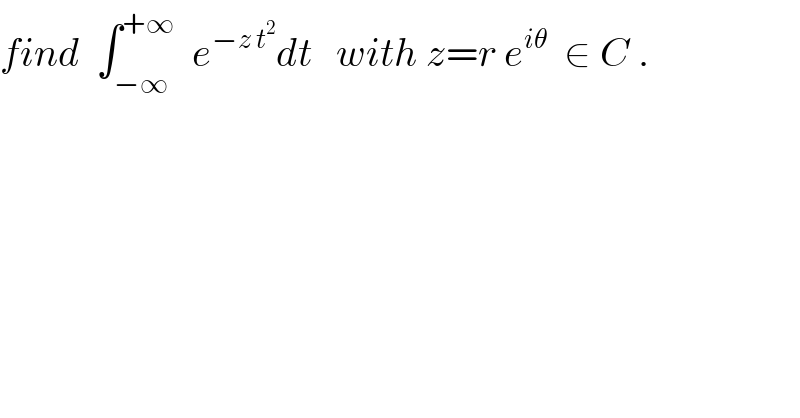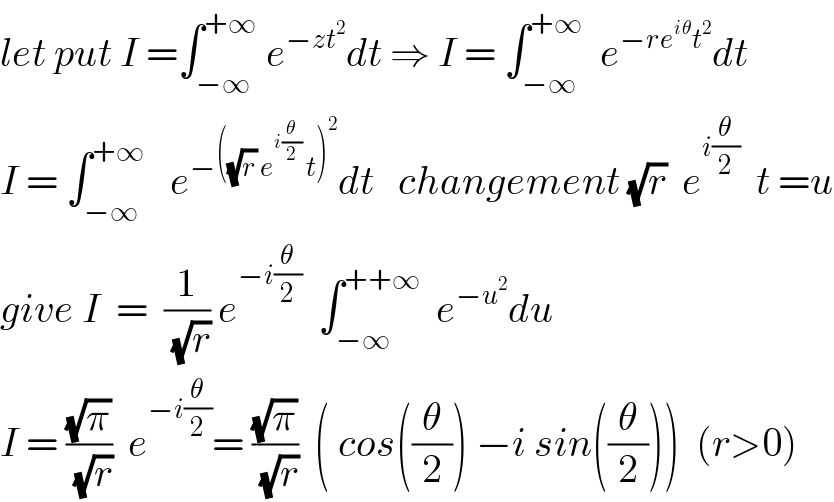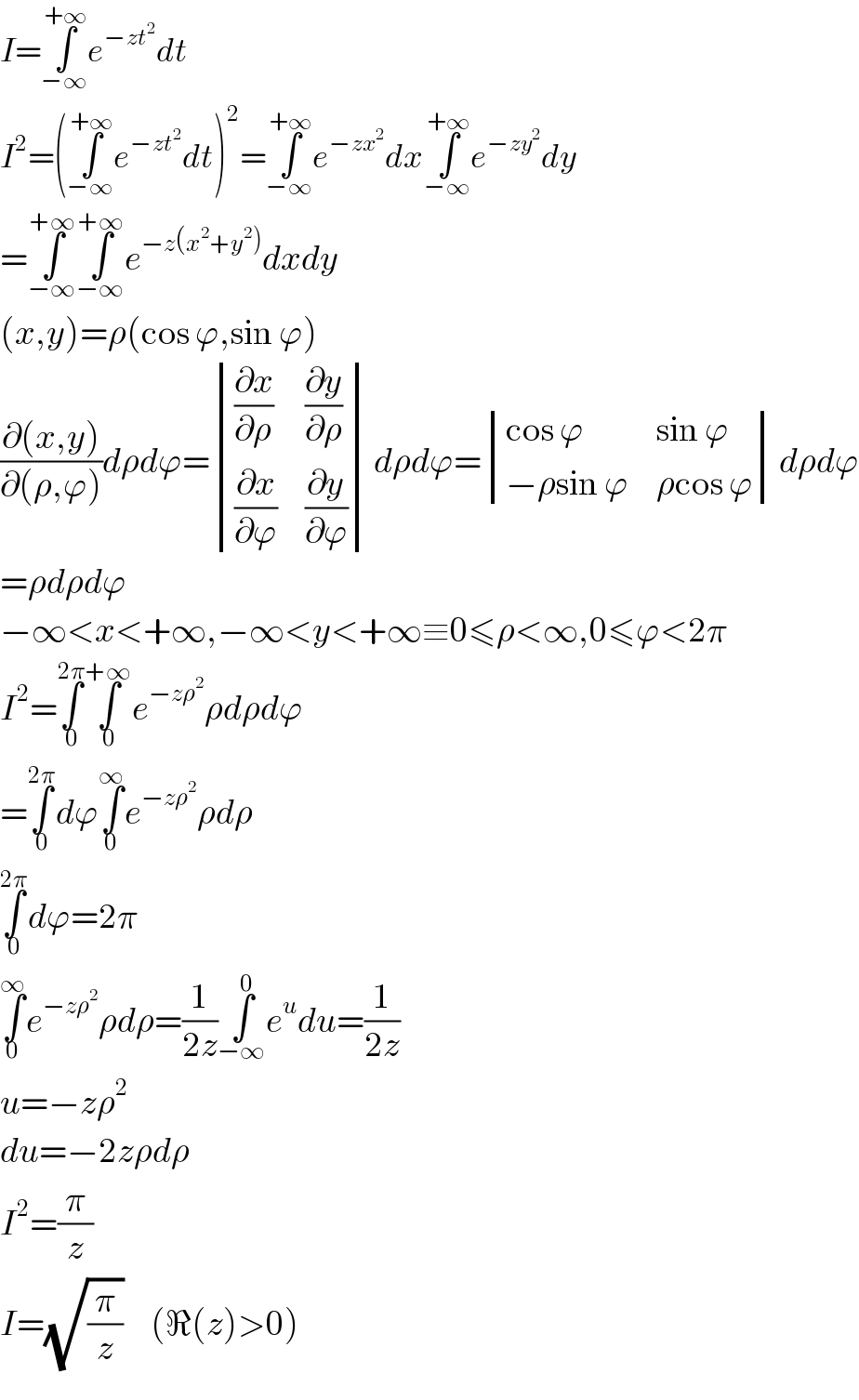
Question and Answers Forum
Question Number 34297 by math khazana by abdo last updated on 03/May/18

Commented by abdo mathsup 649 cc last updated on 04/May/18

Answered by candre last updated on 03/May/18

Commented by math khazana by abdo last updated on 04/May/18

